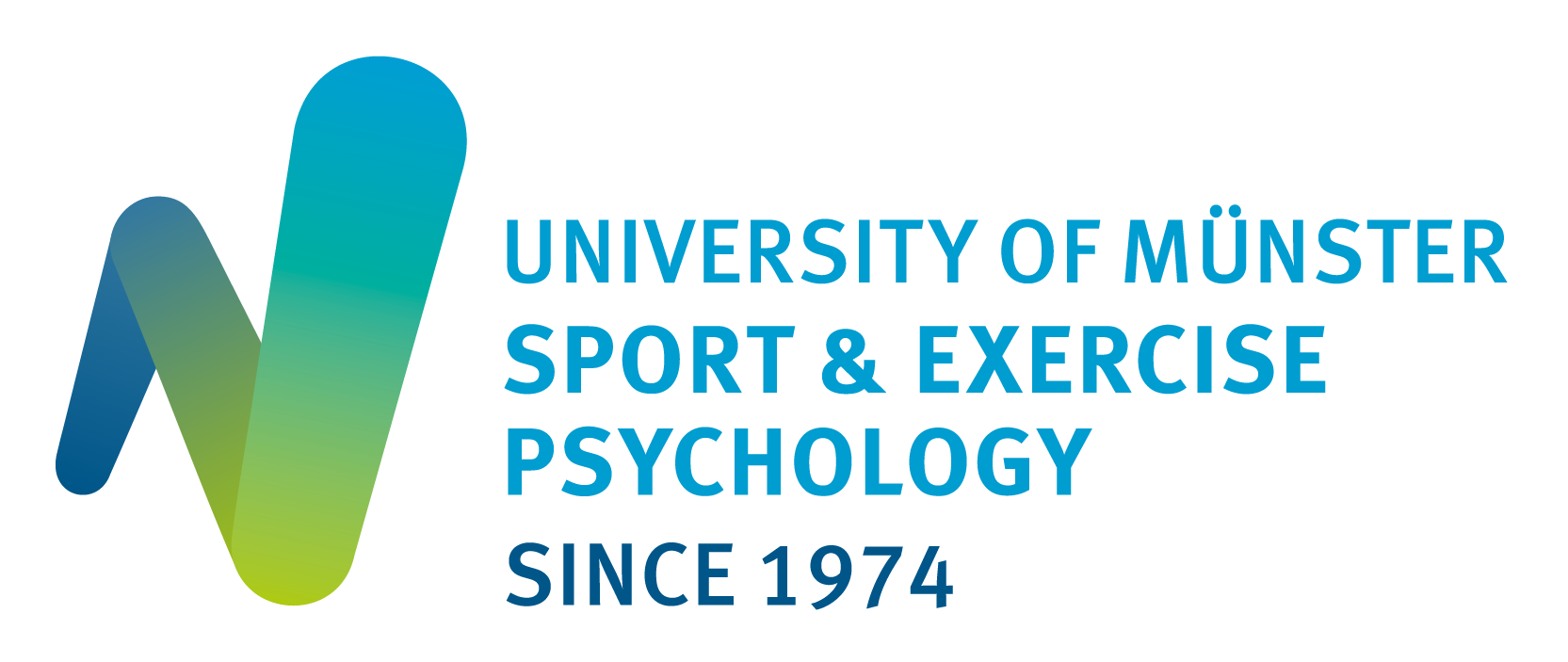Research Foci
- Applied Sport Psychology Praxis
- Mindfulness and Commitment Approaches in Elite Sport
- Self-Regulation-Diagnostics and -Interventions
- Sport Psychological Factors in Badminton
- Doping, Anti-Doping, and Doping Prevention
CV
Academic Education
- University of Tennessee, Knoxville: Ph.D., Education, specialization in Sport Psychology
- Saarland University: Diploma, Sport Science
Positions
- Lecturer Department of Sport Psychology, Muenster University
- Honorary Research Fellow, Kingston University London
- Career Counselor, Saabruecken Olympic Training Center
- Adjunct Faculty, Institute of Sport Science, Saarland University
- Research Associate Institute for Sport and Sport Science, Heidelberg University
- Research Associate Department of Exercise, Sport and Leisure Studies, University of Tennessee
- Research Assistant Department of Movement- and Training Science, Saarland University
Projects
In Process
- Athletes' Transition Tools for Achieving Horizons – ATTACH-U ()
EU-Project Hosted outside the University of Münster: EC - Lifelong Learning Programme: Erasmus+ | Project Number: 101245404
Finished
- An Intervention study on Coaching and Leadership Culture for Coaches in the German Gymnastics Federation (DTB) – CULTurn ()
Participation in Federally Funded Joint Project: Federal Institute of Sport Science | Project Number: ZMl4-071004/22-24 - Wissenschaftliche Begleitung des NTB-Projektes Stärkung von Image und Zuspruch der Trainertätigkeit
()
Own Resources Project
- Athletes' Transition Tools for Achieving Horizons – ATTACH-U ()
Publications
- Brückner, S., & Tietjens, M. (). Führungskompetenz. Eine bislang lang vernachlässigte Ressource der nachhaltigen Leistungsentwicklung von und für Trainerinnen und Trainer. Leistungssport. Sportwissenschaft in Theorie und Praxis, 22 (6), 18–24.
- Brückner, S., & Halberschmidt, B. (). (Angehende) Lehrkräfte gesund erhalten. Lehrhilfen für den Sportunterricht, 73 (10), 453–458.
- Quartiroli, A., Harris, BS., Brueckner, S., Chow, GM., Connole, IJ., Cropley, B., Fogaça, J., Gonzalez, SP., Guicciardi, M., Hau, A., Kao, S., Kavanagh, EJ., Keegan, RJ., Li, HY., Martin, G., Moyle, GM., Noce, F., Peterson, K., Roy, J., Rubio, VJ., Wagstaff, C. RD., Wong, R., Yousuf, S., & Zito, M. (). The International Society of Sport Psychology Registry (ISSP-R) ethical code for sport psychology practice. International Journal of Sport and Exercise Psychology, 18. doi: 10.1080/1612197X.2020.1789317.
Published
- Brückner, S., Raue, C., & Querfurth, S. (). Wenn virtuelle Online-Welten reale Auswirkungen haben: Umgang mit Cyber-Mobbing im Sport. 50. Jahrestagung der Arbeitsgemeinschaft für Sportpsychologie, Köln.
accepted / in Press (not yet published)
- Raue, C., Querfurth, S., Brückner, S., & Zito, M. (). How to effectively intervene with cyber-bullying in youth team sports. AASP 33nd Annual Conference, Toronto, Kanada.
Conference Contributions
Research Articles in Edited Proceedings (Conferences)
- Brueckner, S., & Cote, T. (). Implementing Mindfulness Meditation Training for Sport 2.0 in a multi-national setting: Athletes’ experiences and cross-cultural perspectives. Annual meeting of the Association for Applied Sport Psychology, Orlando, FL, USA.
- Brueckner, S. (). A holistic scientist-practitioner approach to developing performance excellence: Signature interventions fostering emotional self-regulation. Annual meeting of the Association for Applied Sport Psychology, Orlando, FL, USA.
Abstract in a Digital Collection (Conferences)
- Kolb, Meike, Dennis, D., Andrea, P., Pia, H., Sebastian, B., & Bernd, S. (). Legitimacy of anti-doping policies – athletes as researchers. NASPSPA 50 Anniversary, San Diego.
Research Article (Book Contribution)
- Petróczi, A., Norman, P., & Brueckner, S. (). Can we better integrate the role of anti-doping in sports and society? A psychological approach to contemporary values-based prevention. in Rabin, O., & Pitsiladis, Y. (ed.), Acute Topics in Anti-Doping. (pp. 160–176). Karger. doi: 10.1159/000460726.
- Wright, DL., Rhee, J., Blischke, K., Erlacher, D., & Brueckner, S. (). Offline improvement occurs for temporal stability but not accuracy following practice of integer and non-integer rhythms. Acta Psychologica, 140, 266–273. doi: 10.1016/j.actpsy.2012.05.010.
- Blischke, K., Zehren, B., Utter, T., & Brueckner, S. (). Doppeltätigkeits-Übung zeitstrukturierter Fingerbewegungsfolgen. Zeitschrift für Sportpsychologie, 18, 18–30. doi: 10.1026/1612-5010/a000033.
Research Article (Journal)
- Blischke, K., Wagner, F., Zehren, B., & Brueckner, S. (). Dual-task practice of temporally structured movement sequences augments integrated task processing, but not automatization. Journal of Human Kinetics, 25, 5–15. doi: 10.2478/v10078-010-0026-1.
Abstract in a Digital Collection (Conferences)
- Blischke, K., Zehren, B., Wagner, F., Utter, T., & Brueckner, S. (). Is movement automatization by dual-task practice restricted to non-sequential tasks? Annual meeting of the North American Society for the Psychology of Sport and Physical Activity, Tuscon.
- Fairbrother JT, B. S., & Barros, JAC. (). The effects of switching between targets on a simple motor skill. Human Movement Science, 28, 1–11. doi: 10.1016/j.humov.2008.05.001.
- Fairbrother, JT., & Brueckner, S. (). Task switching effects in anticipation timing. Research Quarterly for Exercise and Sport, 79, 116–121.
- Blischke, K., Erlacher, D., Kresin, H., Brueckner, S., & Malangré, A. (). Benefits of Sleep in Motor Learning – Prospects and Limitations. Journal of Human Kinetics, 20, 23–36. doi: 10.2478/v10078-008-0015-9.
- Black, CB., Wright, DL., Magnuson, CE., & Brueckner, S. (). Learning to detect error in movement timing using physical and observational practice. Research Quarterly for Exercise and Sport, 76, 28–41.
- Wright, DL., Black, CB., Immink, MA., Brueckner, S., & Magnuson, CE. (). Long-term motor programming improvements occur via concatenation of movement sequences during random but not during blocked practice. Journal of Motor Behavior, 36.
Dr. Sebastian Brückner



